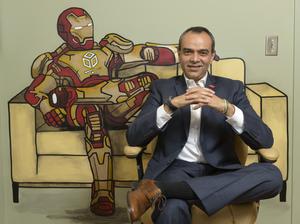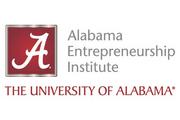
The CEO of a Birmingham-based company will lead a panel discussion at an international convention that will feature experts from Pfizer and Johnson & Johnson.
The discussion will focus on the use of artificial intelligence in cancer drug discovery and take place at the BIO International Convention. The CEO, Karim I. Budhwani, leads CerFlux Inc., a creator of advanced personalized medicine technology for cancer. Budhwani also led a panel at the convention last year.
The panel discussion, titled "Is your billion-dollar AI cutting-edge technology or artificial ignorance?" will feature the experts from Pfizer and Johnson & Johnson, as well as the Frederick National Laboratory for Cancer Research.
The panel discussion will explore how AI can revolutionize cancer drug discovery, the market potential for biotech and pharmaceutical companies, and the challenges that must be overcome to realize these benefits. The discussion aims to provide insight into themes immediately relevant to drug R&D, licensing, clinical trials and regulatory processes. It will also emphasize new tools and capabilities in precision and personalized medicine to reduce the cost and time of bringing cancer therapies to market.
The BIO International Convention is the largest biotech conference in the world, and this year's event will take place June 5 through 8 in Boston.
According to estimates from the International Agency for Research on Cancer, by 2040, the global burden of cancer is expected to grow to 27.5 million new cancer cases and 16.3 million cancer deaths due to the growth and aging of the population.
Despite nearly $90 billion in annual investment in preclinical research and clinical trials, over 90% of new cancer therapies fail in clinical trials, according to CerFlux. And for patients, the cost of treatment is often overwhelming.
“Ironically, billions of dollars and FOMO investor zeal frantically chasing the promise of artificial intelligence have been snared in the peril of 'artificial ignorance' instead,” Budhwani said. “Despite incredible advances, we’ve seen example after example of AI perpetuating bias and discrimination across industries. Smart algorithms trained on dumb data transforming ‘garbage in, garbage out,’ into a more sinister ‘garbage in, amplified garbage out.’ But pausing AI in oncology is not an option either. In fact, we have to find ways to accelerate the responsible use of AI in oncology to maximize its benefits and improve patient outcomes.”
AI applications have a big potential impact in the fight against cancer, said Maggie Scully, partnership development manager at Frederick National Laboratory for Cancer Research.
“This potential benefit is so great, that it must be matched with rigorous, collaborative and transparent application. It is up to all of us to ensure safe, effective and equitable use for all that are affected by cancer," she said.






